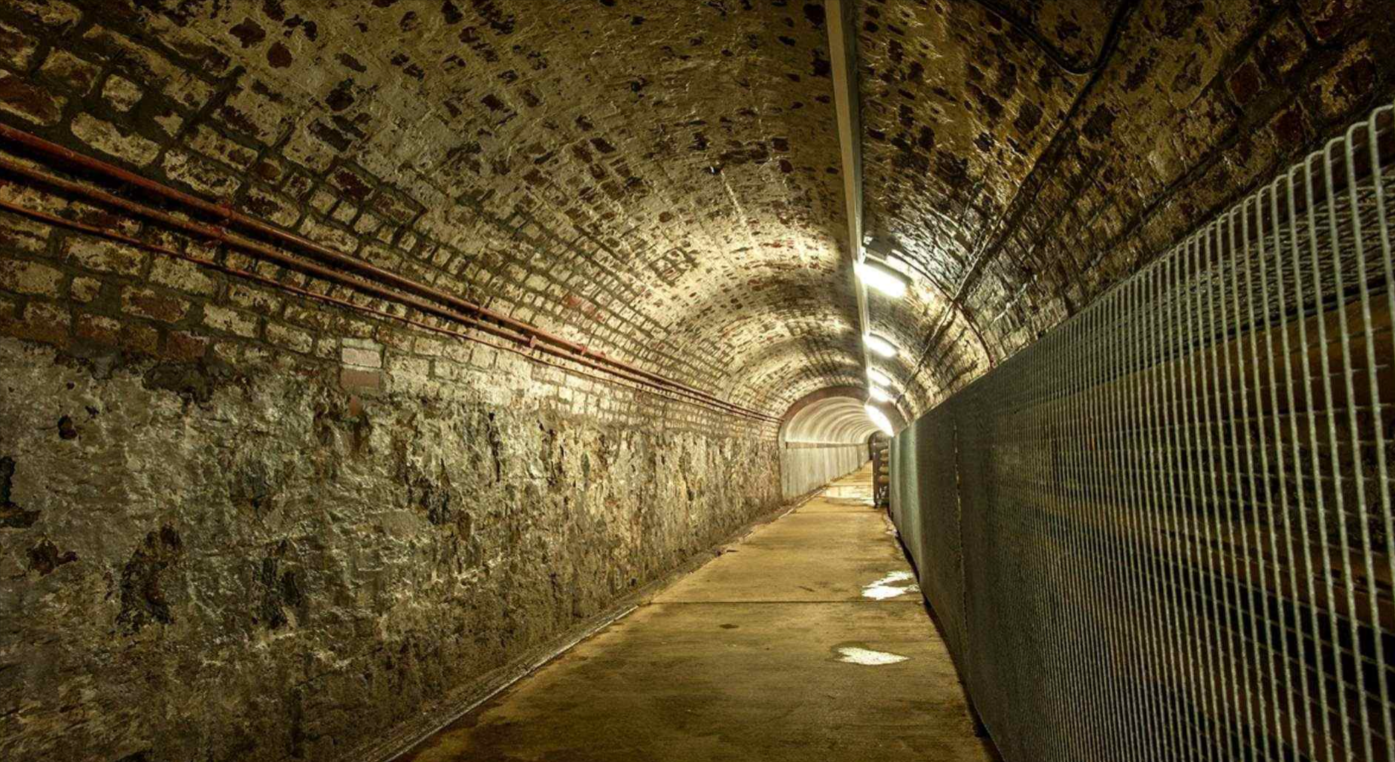Yes, it is safe to visit Northern Ireland. This region offers a rich tapestry of landscapes and cities. Tourists can explore without undue worry about personal safety. Crime rates here are low compared to other parts of the world.
When visiting, it’s wise to take common travel precautions. Stay informed about the areas you plan to visit. Local advice can be invaluable, ensuring a smooth trip.
I've visited Northern Ireland several times myself. Each visit was a comfortable and enjoyable experience. The locals were welcoming and the scenery was breathtaking. I felt safe throughout my travels.
Safety Statistics in Northern Ireland
Visiting Northern Ireland is generally considered safe for tourists and residents alike. The region has a comparatively lower crime rate than other parts of the UK, and local authorities are proactive in ensuring public safety. Despite historical conflicts with dissident groups, Northern Ireland has made significant strides towards peace and stability. It's a region that prides itself on its strong community spirit and the warmth of its people. However, like any travel destination, it's advisable to stay informed about the local area, adhere to general safety advice, and remain aware of your surroundings, especially in less familiar areas like the city centre and transportation hubs.
-
Total Recorded Crimes: Last year, there were 104,000 incidents reported, indicating a relatively stable crime environment. This figure demonstrates an active reporting system and responsive police presence across the region.
-
Homicide Offenses: With only 28 incidents, the homicide rate is exceptionally low, reflecting effective law enforcement and strong community safety initiatives that help to maintain public order and deter violent crimes.
-
Assault and Related Offenses: Recorded at 22,000 incidents, these figures suggest that while minor assaults can occur, particularly in nightlife districts or during large public events, the risk remains moderate and is actively managed by local authorities.
-
Theft and Burglary: These offenses totaled 45,000 incidents last year. While this number might seem high, it is typical for urbanized areas. Visitors and residents are advised to secure their belongings and remain vigilant, especially in tourist-heavy locations like Belfast City Hall and other urban centers within the British Isles.
-
Public Order Offenses: These amounted to 8,000 incidents, mostly involving minor disturbances, which were efficiently managed by police forces. This indicates that while public order offenses occur, they do not typically escalate into more serious conflicts.
In addition to these statistics, road safety in Northern Ireland has seen considerable improvements, with a noticeable decrease in traffic-related fatalities and serious injuries over the past decade. This trend is supported by stringent traffic laws, effective enforcement, and continuous public awareness campaigns in local media that promote safer driving behaviors. The region’s status within the European Union further enhances these safety measures through collaboration and shared best practices.
What Places To Avoid in Northern Ireland?
Areas with higher crime rates, like certain parts of Belfast including the Shankill Road area, can be riskier, especially after dark. In Derry, the Bogside and Fountain areas are known for past conflicts and can be sensitive, particularly around the anniversaries of significant events
In my own travels, I've found it's wise to consult with locals about the current atmosphere in their neighbourhoods. Sticking to well-lit, populated paths and avoiding political demonstrations has always kept me out of trouble. It's also advisable to stay updated on travel advisories from reputable sources before and during your visit.
Shankill Road Area

One area often cited for caution is the Shankill Road area in Belfast. This neighborhood has a historically complex background due to its role in the sectarian conflict known as "The Troubles." Shankill Road is famous for its political murals, street name and memorials that depict the area's intense past. Although the situation has improved, sporadic tensions can still arise, making it a sensitive area for visitors.
From my experience, walking through Shankill Road can feel like stepping into a living history book. The vivid murals and poignant memorials tell stories of conflict and community resilience. However, the atmosphere can sometimes feel charged, and it’s clear that remnants of past violence and unrest linger. It is important for visitors to be cautious and respectful, particularly around areas marked by historical significance.
While much of Northern Ireland is safe and welcoming, with stunning landscapes and friendly locals, certain parts of Belfast, like the Shankill Road area, require extra sensitivity and awareness.
Crumlin Road

Crumlin Road in Northern Ireland is one dangerous place tourists might consider avoiding. While generally safe, this area can present some challenges, especially near the old jail and some interface areas where occasional tensions can arise.
In my visits, I've noticed that walking along certain stretches north of Crumlin Road during nighttime can be unsettling due to poor lighting and low pedestrian traffic. The historical significance of the area makes it interesting by day, but the ambiance shifts after sunset. To ensure safety, I recommend sticking to well-lit, busier parts of the city in the evenings and remaining vigilant in less familiar areas.
The Markets Area
The Markets area in Belfast warrants caution, especially during the evening and at night due to reports of occasional disturbances and heightened safety risks. Visitors are advised to stay vigilant in this neighborhood and consider visiting during daylight hours when there is more activity and better visibility.
Tourists should prioritize their safety by keeping abreast of the latest local news and avoiding areas known for unrest. While The Markets is known for its historical and cultural significance, it is advisable to approach with caution or explore the area as part of a guided tour, which can provide additional security and insight into the local context. Planning and awareness are key to ensuring a secure and enjoyable visit to Northern Ireland.
Is Northern Ireland Safe Tourists?
Yes, Northern Ireland is generally safe for tourists. The region is known for its low crime rate and robust safety measures, especially in tourist-heavy areas such as Belfast and the Causeway Coast. Local police are visible and proactive in maintaining a secure environment, and there are numerous resources available for visitors to ensure their safety.
During my visits to Northern Ireland, I consistently felt safe, whether I was navigating the vibrant neighborhoods of Belfast or exploring the stunning landscapes of the Causeway Coast. It's important for tourists to take standard travel precautions, but overall, Northern Ireland is a hospitable and secure place to explore.
Is Northern Ireland Safe To Live Permanently?
Yes, Northern Ireland is safe to live permanently. Safety concerns, while present in any location, are generally low in Northern Ireland. The region maintains a stable political environment and a low crime rate compared to other parts of the world.
Residents enjoy a high quality of life with access to excellent healthcare, education, and public services. Communities are typically welcoming and diverse, contributing to the overall security and comfort of living in Northern Ireland.
Living in Northern Ireland Pros and Cons
When considering the safety of visiting Northern Ireland, it's important to weigh the pros and cons based on current conditions and historical context. Northern Ireland, like any region, has its specific set of circumstances that can influence a visitor's experience. Over the past few decades, it has made significant progress in peace and stability, especially following the Good Friday Agreement in 1998. However, visitors should remain aware of the social and political nuances that still exist. It might not be the place to talk politics, as the area is known for its rich history, cultural heritage, and natural beauty, which attract tourists, but it's wise to stay informed about areas of tension and seek local advice.
Pros:
-
Improved Safety and Stability: Recent years have seen a significant decrease in conflict-related incidents, making it safer for tourists and residents.
-
Rich Cultural Experiences: From the Titanic Belfast exhibit to the historic walls of Derry, Northern Ireland offers a wealth of cultural attractions.
-
Friendly Locals: Visitors often praise the warmth and hospitality of the Northern Irish people.
-
Scenic Landscapes: The region boasts stunning natural beauty, from the Giant's Causeway to the Mourne Mountains, ideal for hiking, photography, and nature enthusiasts.
-
Vibrant Cities: Belfast and Derry offer a mix of traditional and modern shopping, dining, and entertainment options.
-
Festivals and Events: Northern Ireland hosts various cultural festivals and events throughout the year, providing insights into local traditions and contemporary culture.
Cons:
-
Occasional Political Tensions: While much improved, sporadic political tensions can still occur, particularly around marching season in July.
-
Localized Unrest: Certain areas might still experience sporadic unrest, and it's advisable to stay updated through local news.
-
Weather Variability: The weather can be highly unpredictable, with frequent rain and changes that might affect travel plans.
-
Limited Public Transportation: Outside major cities, public transport options can be limited, necessitating car rental for extensive travel.
-
Cost of Living: Tourists might find the cost of dining and accommodation relatively high compared to other parts of the UK.
Safety Precautions for Specific Activities in Ireland
When considering whether it is safe to visit Northern Ireland for specific activities, it's essential to adopt appropriate safety precautions. Throughout my numerous visits, I consistently found that engaging in guided walking tours through cities like Belfast and Derry is quite safe, provided one stays on well-traveled paths. Notably, the Cathedral Quarter in Belfast is one of the prime tourist attractions, bustling with cultural vibrancy and safe for American tourists. It is crucial to remain vigilant and stick to popular areas, especially during evening hours.
For outdoor enthusiasts interested in hiking, locations such as the Giant's Causeway or the Mourne Mountains offer a secure environment. However, monitoring weather conditions and adhering to designated trails are imperative. I always ensure to carry local emergency contacts and stay informed about any local advisories, including updates from the nearest police station in case of any sectarian violence or other urgent matters. Avoiding discussions on sensitive topics such as politics during tours can also enhance safety. These proactive safety measures have invariably contributed to making my experiences both enjoyable and worry-free.
Water Activities
The region offers some of the most beautiful and serene water landscapes, from the majestic lakes of Fermanagh to the rugged coastlines of the Causeway Coast. As someone who has kayaked along the Antrim Coast, I can personally attest to not only the breathtaking views but also the thorough safety measures in place. However, safety is paramount, and there are specific precautions to observe to ensure a safe and enjoyable experience.
I remember wearing a snug-fitted life jacket, which is the first rule of water safety here. The instructors always stressed the importance of checking the weather before heading out, as conditions can change rapidly. Here are the key precautions for anyone planning water-related activities in Northern Ireland:
-
Wear a Life Jacket: Always wear a properly fitting life jacket, regardless of your swimming skills. This is crucial as it provides buoyancy and can be a lifesaver in unexpected situations.
-
Check Weather Conditions: Before setting out, check the local weather conditions and water temperatures. Northern Ireland's weather can be unpredictable, and sudden changes can make water activities hazardous.
-
Stay Informed About Local Regulations: Familiarize yourself with local boating and water safety regulations. Each area may have specific rules about speed limits, right of way, and areas restricted to swimmers or specific types of boats.
-
Use Reputable Activity Providers: Opt for water activity providers with certified instructors and a good safety record. Ensure that the equipment provided is up to standard and that there is adequate safety briefing before activities commence.
By adhering to these guidelines, visitors can safely enjoy the stunning water environments that Northern Ireland has to offer.
Driving
When driving in any new location, you should take certain precautions to ensure safety. Northern Ireland's roads range from well-maintained motorways to narrower country lanes, which can present challenges, particularly for those not accustomed to left-side driving.
During my trips, I found that the weather can change quickly, affecting road conditions. It's crucial to be prepared for sudden showers or fog, especially in rural areas. The locals are usually friendly and helpful if you need directions or advice about road conditions. Here are some key safety tips for driving in Northern Ireland:
-
Stay Left: Remember to drive on the left side of the road. This can be disorienting if you're from a country that drives on the right.
-
Speed Limits: Observe all speed limits. These vary depending on the road type and are strictly enforced.
-
Rural Roads: Be cautious on narrow country roads. These can be tricky to navigate and often have hidden dips or bends.
-
Weather Awareness: Be prepared for quickly changing weather conditions. Rain and fog are common and can reduce visibility significantly
By following these guidelines, you can enjoy a safe driving experience across the stunning landscapes of Northern Ireland. My own experiences driving there have been largely positive, thanks to staying alert and respecting local driving laws.
Cycling
Yes, Northern Ireland offers a relatively secure environment for cycling enthusiasts. The region boasts well-maintained bike paths and roads, along with picturesque routes that attract cyclists from around the globe. However, like any travel activity, taking certain precautions can enhance your safety and overall experience.
When planning a cycling trip in Northern Ireland, consider the weather conditions, as they can change rapidly. Also, be aware of the less frequented rural routes, which might not have as many services or facilities readily available. Here are some specific safety precautions to follow:
-
Wear a Helmet: Always wear a properly fitted helmet to protect against head injuries.
-
Use Reflective Gear: Equip yourself with reflective clothing and lights, especially if you plan to cycle in the early morning or late evening.
-
Follow Traffic Rules: Adhere to local traffic laws and cycling regulations. Use bike lanes where available.
-
Plan Your Route: Choose well-traveled routes and check their conditions beforehand. Avoid isolated paths, particularly in unfamiliar areas.
-
Keep Valuables Secure: Secure your belongings and avoid displaying expensive equipment conspicuously.
-
Stay Informed: Keep up-to-date with local news for any updates on safety or environmental conditions that could affect your cycling plans.
Public Events
Generally, Northern Ireland is a welcoming destination for tourists attending public gatherings and events. However, like any location, it's crucial to be aware of safety protocols to ensure a positive experience. Public events, especially in larger cities like Belfast, are well-organized with safety measures in place to protect attendees. Authorities prioritize safety, but visitors should also take personal precautions. Here are some safety tips to consider when attending public events in Northern Ireland:
-
Stay Informed: Before the event, check for any safety advisories or updates from event organizers or local news outlets.
-
Personal Belongings: Keep your personal belongings, such as wallets and mobile phones, secure and close to your body to prevent theft.
-
Emergency Exits: Familiarize yourself with the event layout. Identify emergency exits and safety assembly points upon arrival.
-
Follow Rules: Adhere to all event rules and guidelines. These are put in place to ensure the safety of all attendees.
-
Travel in Groups: Whenever possible, travel with friends or family, especially at night.
-
Report Suspicious Activity: If you see anything unusual or suspicious, report it to event security or local authorities immediately.
-
Stay Sober: Maintain a clear head by moderating your alcohol consumption, which can help you respond to any unexpected situations.
-
Use Official Transport: Use official event transportation services where available, especially for larger events that may draw big crowds.
FAQs On Is It Safe To Visit Northern Ireland?
1. Is it safe to visit Northern Ireland?
Yes, it is safe to visit Northern Ireland. Crime rates are relatively low, and tourists are generally well-received by locals.
2. What precautions should I take when traveling to Northern Ireland?
Stay aware of your surroundings, especially in crowded areas. Keep valuables secure and travel with reputable transportation services.
3. Are there any areas in Northern Ireland that should be avoided?
While most of Northern Ireland is safe for tourists, it's wise to avoid areas with recent histories of unrest or attacks. Checking local news or consulting with your hotel can provide up-to-date advice.
4. What should I do in an emergency while in Northern Ireland?
In an emergency, dial 999 for immediate assistance from police, fire, or medical services. It’s also recommended to have the contact information for your embassy.
5. How do locals in Northern Ireland typically react to tourists?
Locals in Northern Ireland are generally friendly and helpful to tourists, often eager to talk and share their rich cultural heritage and history.
